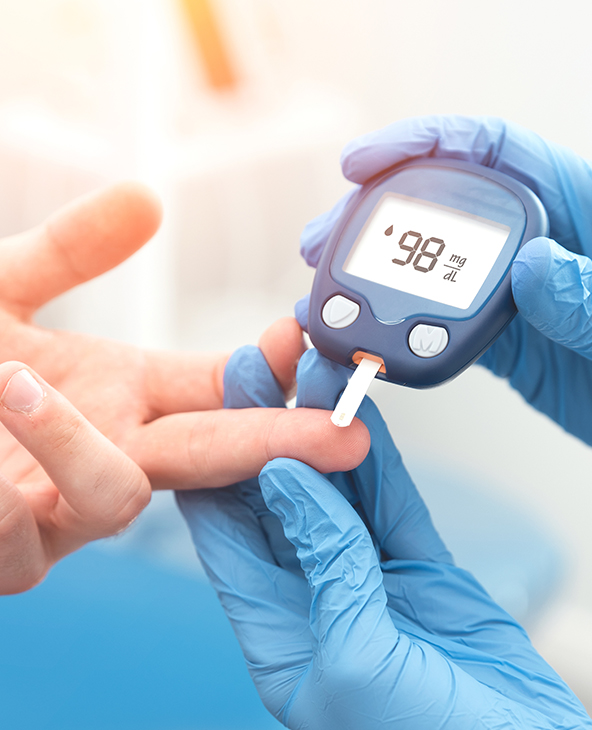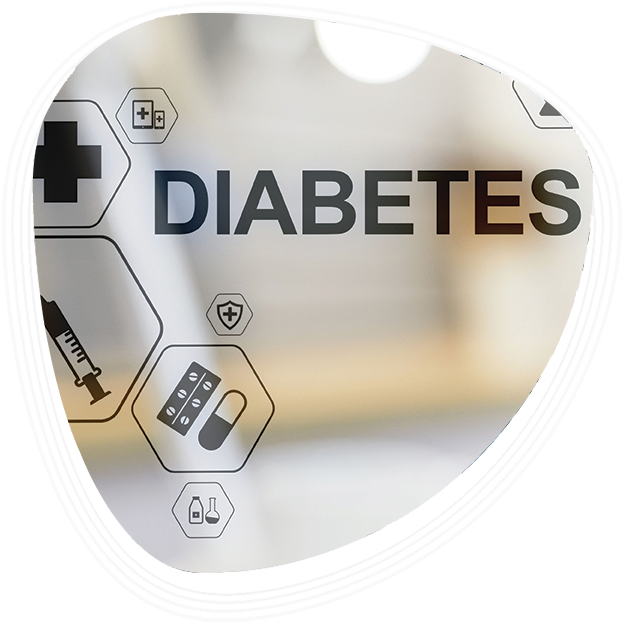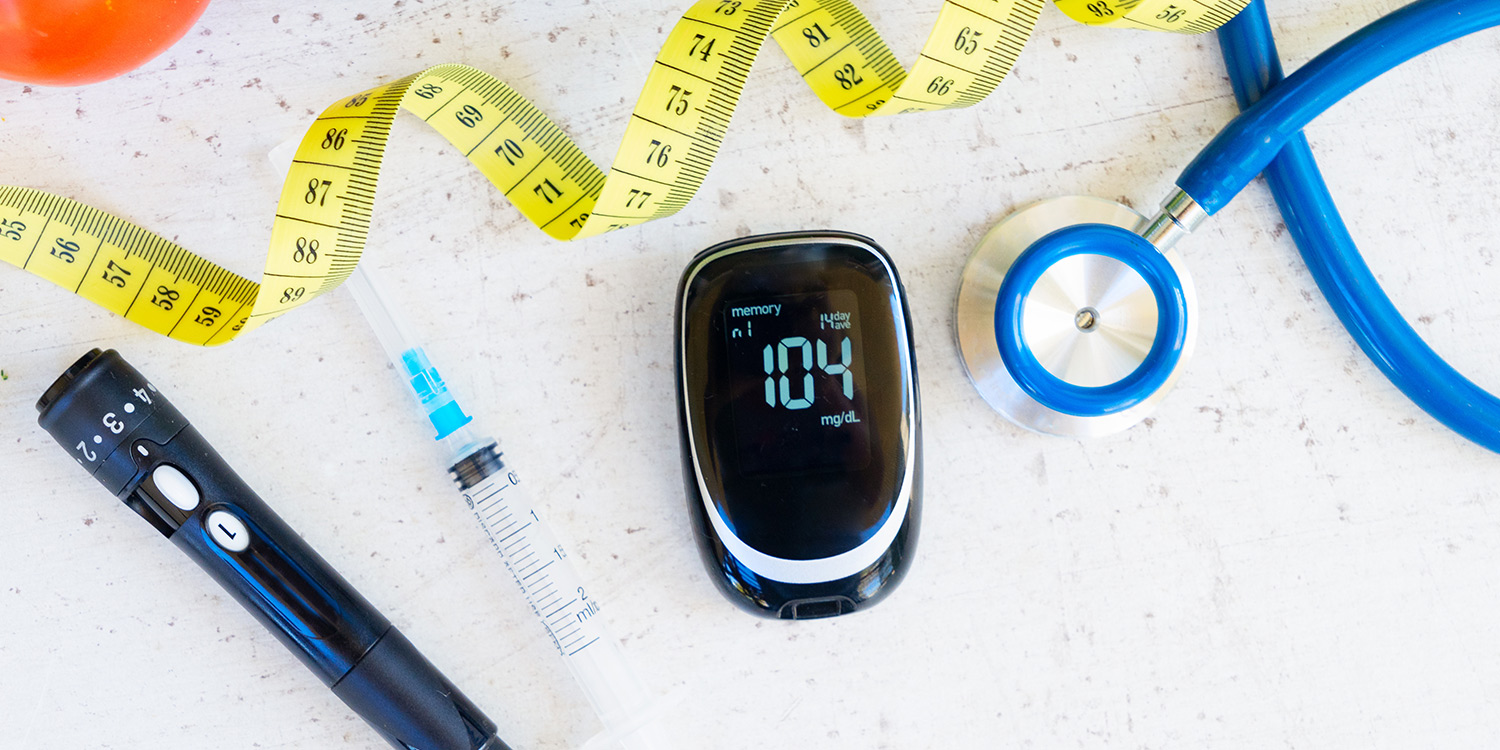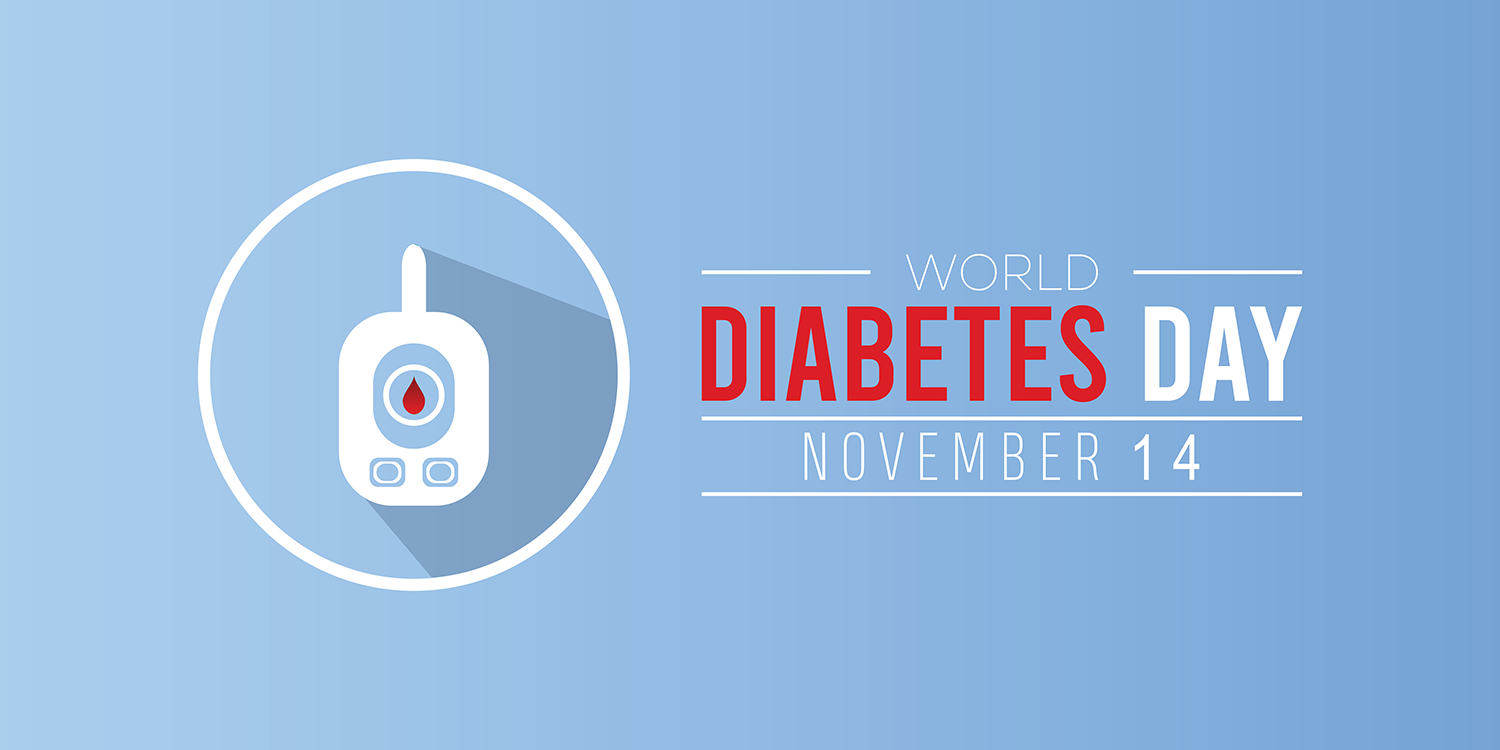At Graphic Era Hospital, diabetes care goes beyond blood sugar control, empowering individuals to live healthier lives. Our Department of Diabetes, Obesity & Endocrinology offers comprehensive treatment for all types of diabetes, including Type 1, Type 2, gestational diabetes, and rare forms such as monogenic and neonatal diabetes. With a multidisciplinary team of endocrinologists, diabetes educators, dietitians, and lifestyle specialists, we provide personalised treatment plans based on medical needs, lifestyle habits, and long-term goals.
When to Seek Diabetes Screening and Consultation
Early detection plays a crucial role in preventing diabetes-related complications. If left untreated, diabetes can quietly affect vital organs such as the heart, kidneys, eyes, and nerves. Understanding the symptoms and acting promptly can help avoid long-term health risks and improve quality of life. Common signs that may indicate the need for diabetes testing include:

- Frequent urination, especially at night
- Excessive thirst or dry mouth
- Unexplained weight loss or gain
- Persistent fatigue or weakness
- Blurred vision or visual disturbances
- Tingling or numbness in hands or feet
- Slow-healing wounds or frequent skin infections
- Increased hunger despite eating regularly
- Darkened skin patches around the neck or armpits
- Irritability, mood changes, or poor concentration
Key Considerations Before Starting Diabetes Treatment
A proper diagnosis is essential to determine the type of diabetes and plan appropriate treatment. At Graphic Era Hospital, we use a range of diagnostic tools to evaluate blood glucose levels, assess complications, and guide long-term care strategies. Key steps and considerations before starting diabetes treatment include:
- Fasting Blood Glucose Test to measure baseline sugar levels
- HbA1c test to assess average blood sugar over 2–3 months
- Oral Glucose Tolerance Test (OGTT) for gestational or borderline cases
- Random Blood Sugar Test for immediate assessment
- Continuous Glucose Monitoring (CGM) for real-time tracking
- Family history and risk factor evaluation
- Blood pressure and cholesterol screening
- Kidney function and liver profile tests
- Foot and eye exams to detect early complications
- Personalised counselling on lifestyle, diet, and treatment options
Diabetes Treatments Available at Graphic Era Hospital
At Graphic Era Hospital, diabetes treatment is tailored to each patient’s specific diagnosis, lifestyle, and health goals. We offer a wide range of medical and non-medical interventions aimed at controlling blood sugar, preventing complications, and improving overall well-being.
Our key treatment options include:
- Oral Antidiabetic Medications: Prescribed to help lower blood sugar in patients with Type 2 diabetes.
- Insulin Therapy: Customised regimens for patients with Type 1 diabetes, gestational diabetes, or advanced Type 2 diabetes using injectable pens,syringes and insulin pumps.
- Continuous Glucose Monitoring (CGM): Enables real-time blood sugar tracking and helps fine-tune treatment decisions.
- Medical Nutrition Therapy (MNT): Diet planning and nutritional support to stabilise glucose levels.
- Exercise and Lifestyle Counselling: Structured programmes to improve insulin sensitivity and reduce weight.
- Management of Gestational Diabetes: Special care plans to ensure maternal and foetal safety.
- Obesity-Related Diabetes Care: Weight management strategies including bariatric surgery support and body composition analysis(BCA)
- Comprehensive Diabetes Education and Self-Management Training: Empowering patients to manage their condition confidently.
Why Choose Graphic Era Hospital for Diabetes Treatment?

Diabetes Services Available at Graphic Era Hospital
To support comprehensive diabetes management, Graphic Era Hospital offers a wide range of services tailored to individual needs and disease progression. Our multidisciplinary approach ensures that patients receive timely interventions, education, and monitoring at every stage.
Comprehensive Diabetes Care
- Diagnosis and management of Type 1, Type 2,Gestational Diabetes and other forms of diabetes
- Evaluation and treatment of prediabetes and high-risk individuals
- Support for less common types such as monogenic and brittle diabetes
Continuous Glucose Monitoring and Testing
- CGM device installation and training
- Interpretation of real-time glucose trends
- HbA1c testing and routine blood sugar monitoring
Nutrition and Lifestyle Management
- Individualised diet counselling from certified dietitians
- Exercise guidance to improve insulin sensitivity
- Weight loss programmes for obesity-linked diabetes
Diabetes Complication Screening
- Foot care and screening for diabetic neuropathy
- Retinal exams for diabetic eye disease
- Kidney function and urine protein testing for early nephropathy
Top Diabetes Treatments Available at Graphic Era Hospital
- Insulin therapy for Type 1 and advanced Type 2 diabetes and other forms of diabetes.
- Oral hypoglycaemic agents for blood sugar control
- Continuous Glucose Monitoring (CGM) systems
- Nutrition therapy and lifestyle modification programmes
- Gestational diabetes management
- Bariatric surgery support for obesity-related diabetes
- Education and self-management training
- Monitoring and treatment of diabetes-related complications
Top Procedures
- Adrenalectomy
- Parathyroidectomy
- Thyroidectomy
- Thyroid Lobectomy
- Total Pancreatectomy
Blog
Frequently Asked Questions (FAQs)
What is the difference between Type 1 and Type 2 diabetes?
Type 1 diabetes is an autoimmune condition where the body stops producing insulin. Type 2 diabetes, more common in adults, occurs when the body becomes resistant to insulin or doesn’t produce enough of it.
What are the early symptoms of diabetes in men and women?
Common symptoms include frequent urination, excessive thirst, unexplained weight loss, fatigue, and blurred vision. Women may also experience recurrent infections and polycystic ovary syndrome (PCOS), while men may have erectile dysfunction.
How is diabetes diagnosed at Graphic Era Hospital?
Diagnosis involves blood tests such as fasting blood glucose, HbA1c, and oral glucose tolerance tests. Continuous Glucose Monitoring (CGM) may also be used for detailed tracking.
Can gestational diabetes affect the baby?
Yes, gestational diabetes can increase the risk of high birth weight, premature delivery, and low blood sugar in the newborn. Proper management during pregnancy helps minimise these risks.
What are the long-term complications of diabetes if left untreated?
Uncontrolled diabetes can lead to serious complications such as heart disease, stroke, kidney failure, diabetic foot problems, and vision loss.
Is there a cure for diabetes mellitus?
There is no cure, but diabetes can be effectively managed with medications, insulin, diet, exercise, and regular monitoring.
What is considered a normal diabetes level for blood sugar?
A normal fasting blood sugar level is typically between 70–99 mg/dL. An HbA1c level below 5.7% is considered normal. Levels above these may indicate prediabetes or diabetes.
How often should diabetes tests be done?
For diagnosed patients, testing frequency depends on the treatment plan but generally includes daily glucose checks and regular HbA1c tests every 3–6 months.
Can lifestyle changes alone help manage Type 2 diabetes?
In early stages, lifestyle changes such as a healthy diet, regular exercise, and weight loss can significantly improve blood sugar control and may delay or prevent the need for medication.





